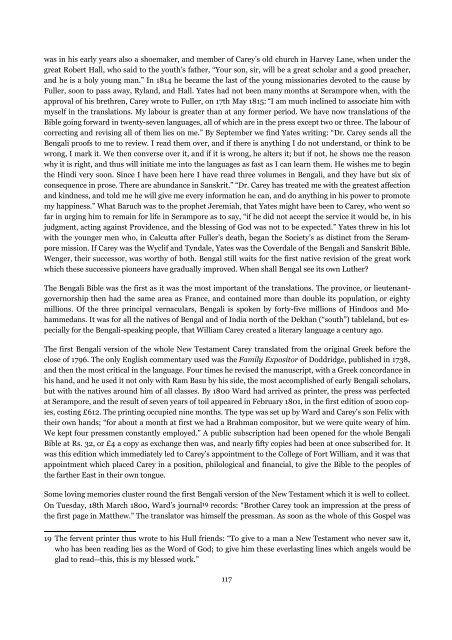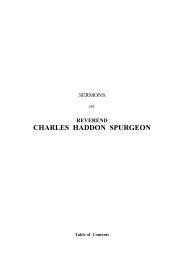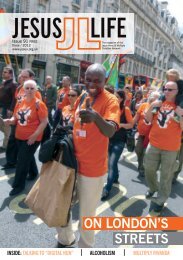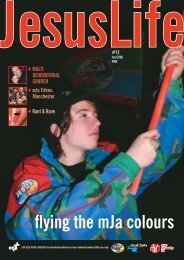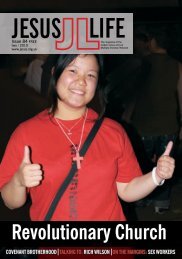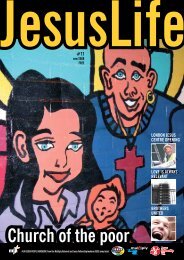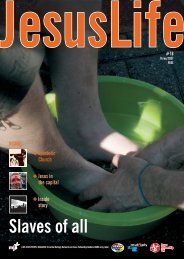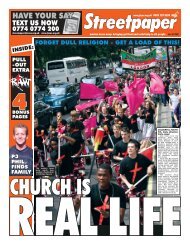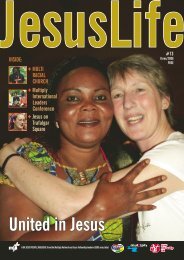Life of William Carey by George Smith - The Jesus Army
Life of William Carey by George Smith - The Jesus Army
Life of William Carey by George Smith - The Jesus Army
You also want an ePaper? Increase the reach of your titles
YUMPU automatically turns print PDFs into web optimized ePapers that Google loves.
was in his early years also a shoemaker, and member <strong>of</strong> <strong>Carey</strong>’s old church in Harvey Lane, when under the<br />
great Robert Hall, who said to the youth’s father, “Your son, sir, will be a great scholar and a good preacher,<br />
and he is a holy young man.” In 1814 he became the last <strong>of</strong> the young missionaries devoted to the cause <strong>by</strong><br />
Fuller, soon to pass away, Ryland, and Hall. Yates had not been many months at Serampore when, with the<br />
approval <strong>of</strong> his brethren, <strong>Carey</strong> wrote to Fuller, on 17th May 1815: “I am much inclined to associate him with<br />
myself in the translations. My labour is greater than at any former period. We have now translations <strong>of</strong> the<br />
Bible going forward in twenty-seven languages, all <strong>of</strong> which are in the press except two or three. <strong>The</strong> labour <strong>of</strong><br />
correcting and revising all <strong>of</strong> them lies on me.” By September we find Yates writing: “Dr. <strong>Carey</strong> sends all the<br />
Bengali pro<strong>of</strong>s to me to review. I read them over, and if there is anything I do not understand, or think to be<br />
wrong, I mark it. We then converse over it, and if it is wrong, he alters it; but if not, he shows me the reason<br />
why it is right, and thus will initiate me into the languages as fast as I can learn them. He wishes me to begin<br />
the Hindi very soon. Since I have been here I have read three volumes in Bengali, and they have but six <strong>of</strong><br />
consequence in prose. <strong>The</strong>re are abundance in Sanskrit.” “Dr. <strong>Carey</strong> has treated me with the greatest affection<br />
and kindness, and told me he will give me every information he can, and do anything in his power to promote<br />
my happiness.” What Baruch was to the prophet Jeremiah, that Yates might have been to <strong>Carey</strong>, who went so<br />
far in urging him to remain for life in Serampore as to say, “if he did not accept the service it would be, in his<br />
judgment, acting against Providence, and the blessing <strong>of</strong> God was not to be expected.” Yates threw in his lot<br />
with the younger men who, in Calcutta after Fuller’s death, began the Society’s as distinct from the Serampore<br />
mission. If <strong>Carey</strong> was the Wyclif and Tyndale, Yates was the Coverdale <strong>of</strong> the Bengali and Sanskrit Bible.<br />
Wenger, their successor, was worthy <strong>of</strong> both. Bengal still waits for the first native revision <strong>of</strong> the great work<br />
which these successive pioneers have gradually improved. When shall Bengal see its own Luther?<br />
<strong>The</strong> Bengali Bible was the first as it was the most important <strong>of</strong> the translations. <strong>The</strong> province, or lieutenantgovernorship<br />
then had the same area as France, and contained more than double its population, or eighty<br />
millions. Of the three principal vernaculars, Bengali is spoken <strong>by</strong> forty-five millions <strong>of</strong> Hindoos and Mohammedans.<br />
It was for all the natives <strong>of</strong> Bengal and <strong>of</strong> India north <strong>of</strong> the Dekhan (“south”) tableland, but especially<br />
for the Bengali-speaking people, that <strong>William</strong> <strong>Carey</strong> created a literary language a century ago.<br />
<strong>The</strong> first Bengali version <strong>of</strong> the whole New Testament <strong>Carey</strong> translated from the original Greek before the<br />
close <strong>of</strong> 1796. <strong>The</strong> only English commentary used was the Family Expositor <strong>of</strong> Doddridge, published in 1738,<br />
and then the most critical in the language. Four times he revised the manuscript, with a Greek concordance in<br />
his hand, and he used it not only with Ram Basu <strong>by</strong> his side, the most accomplished <strong>of</strong> early Bengali scholars,<br />
but with the natives around him <strong>of</strong> all classes. By 1800 Ward had arrived as printer, the press was perfected<br />
at Serampore, and the result <strong>of</strong> seven years <strong>of</strong> toil appeared in February 1801, in the first edition <strong>of</strong> 2000 copies,<br />
costing £612. <strong>The</strong> printing occupied nine months. <strong>The</strong> type was set up <strong>by</strong> Ward and <strong>Carey</strong>’s son Felix with<br />
their own hands; “for about a month at first we had a Brahman compositor, but we were quite weary <strong>of</strong> him.<br />
We kept four pressmen constantly employed.” A public subscription had been opened for the whole Bengali<br />
Bible at Rs. 32, or £4 a copy as exchange then was, and nearly fifty copies had been at once subscribed for. It<br />
was this edition which immediately led to <strong>Carey</strong>’s appointment to the College <strong>of</strong> Fort <strong>William</strong>, and it was that<br />
appointment which placed <strong>Carey</strong> in a position, philological and financial, to give the Bible to the peoples <strong>of</strong><br />
the farther East in their own tongue.<br />
Some loving memories cluster round the first Bengali version <strong>of</strong> the New Testament which it is well to collect.<br />
On Tuesday, 18th March 1800, Ward’s journal 19 records: “Brother <strong>Carey</strong> took an impression at the press <strong>of</strong><br />
the first page in Matthew.” <strong>The</strong> translator was himself the pressman. As soon as the whole <strong>of</strong> this Gospel was<br />
19 <strong>The</strong> fervent printer thus wrote to his Hull friends: “To give to a man a New Testament who never saw it,<br />
who has been reading lies as the Word <strong>of</strong> God; to give him these everlasting lines which angels would be<br />
glad to read--this, this is my blessed work.”<br />
117


